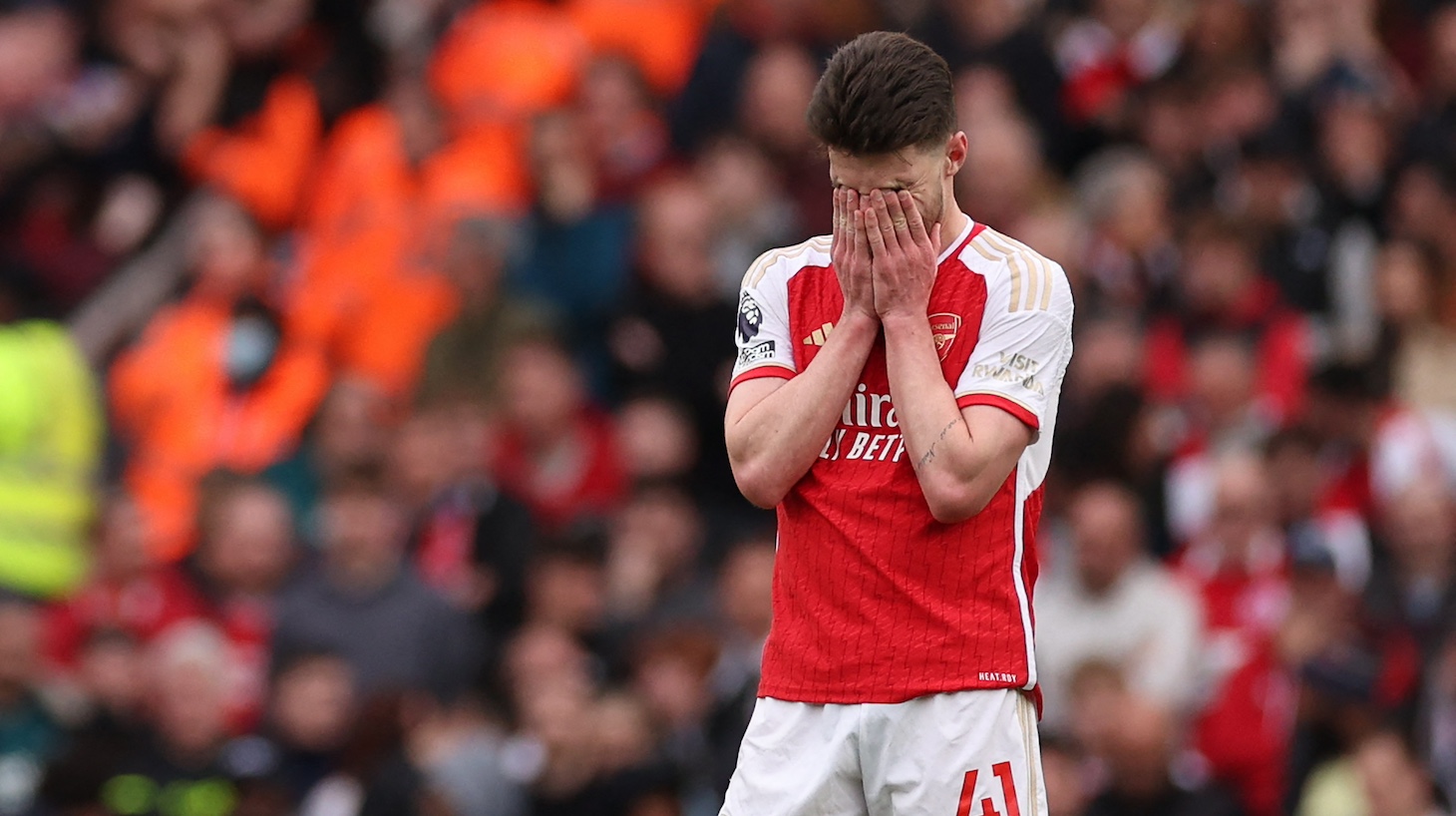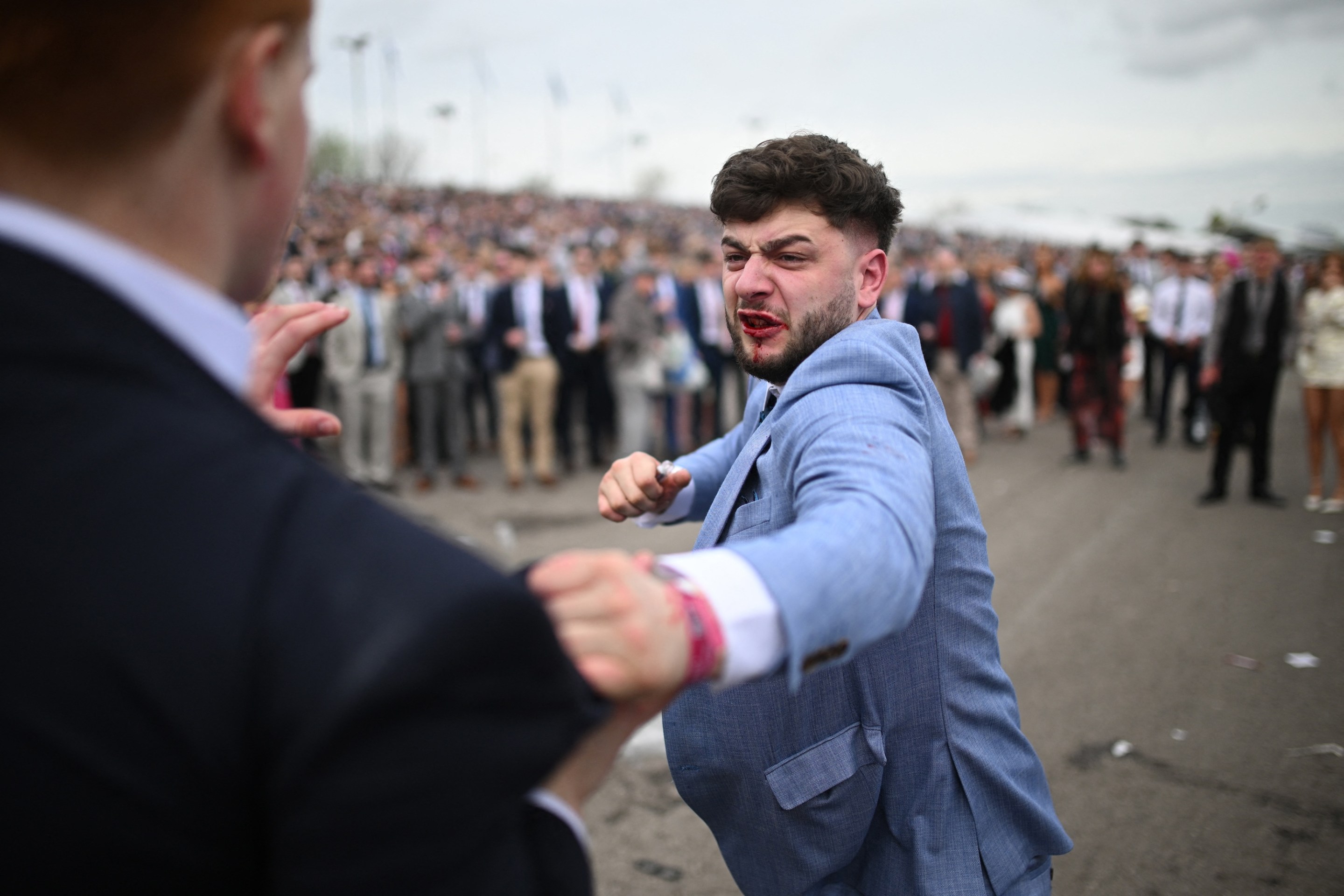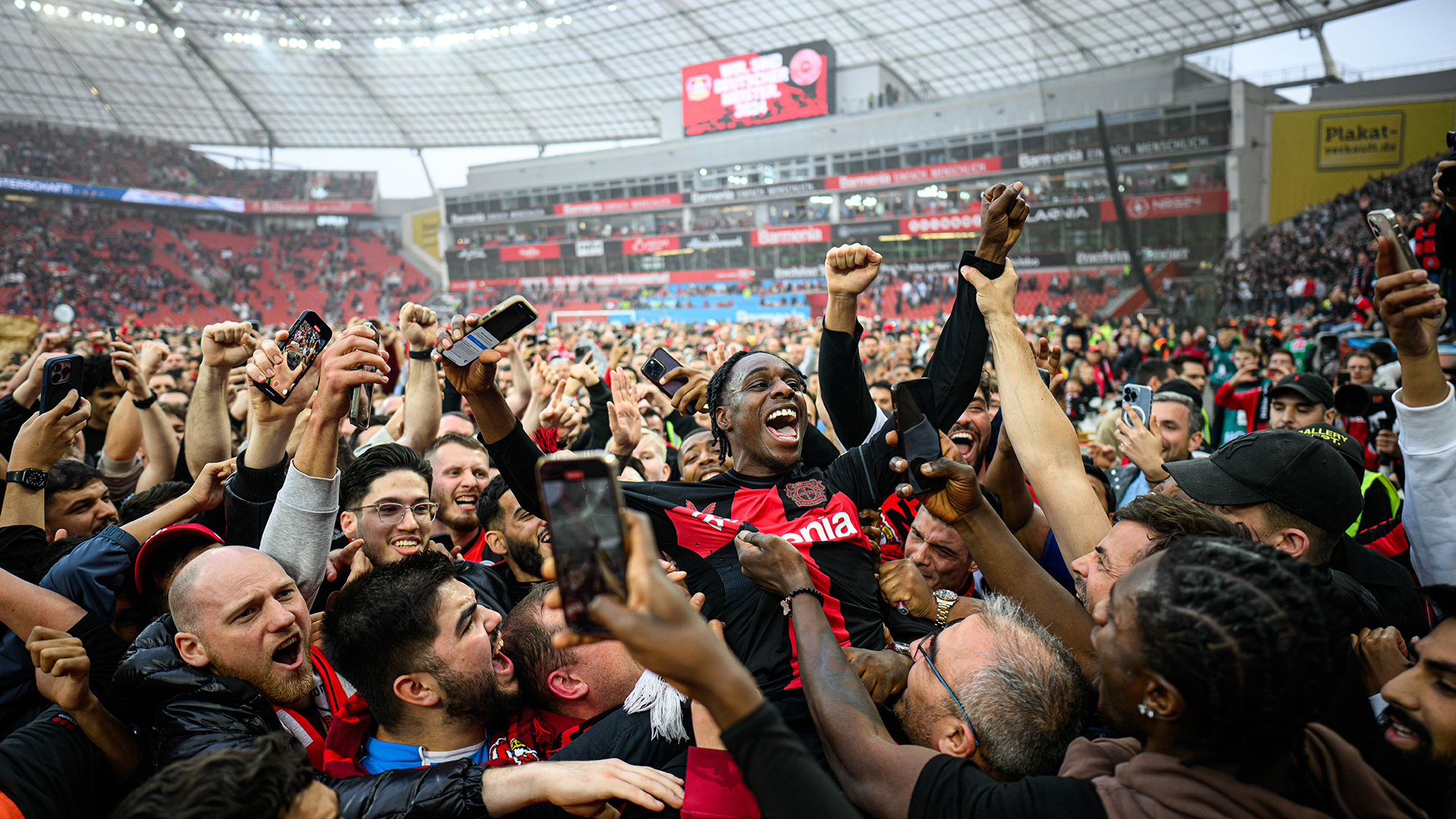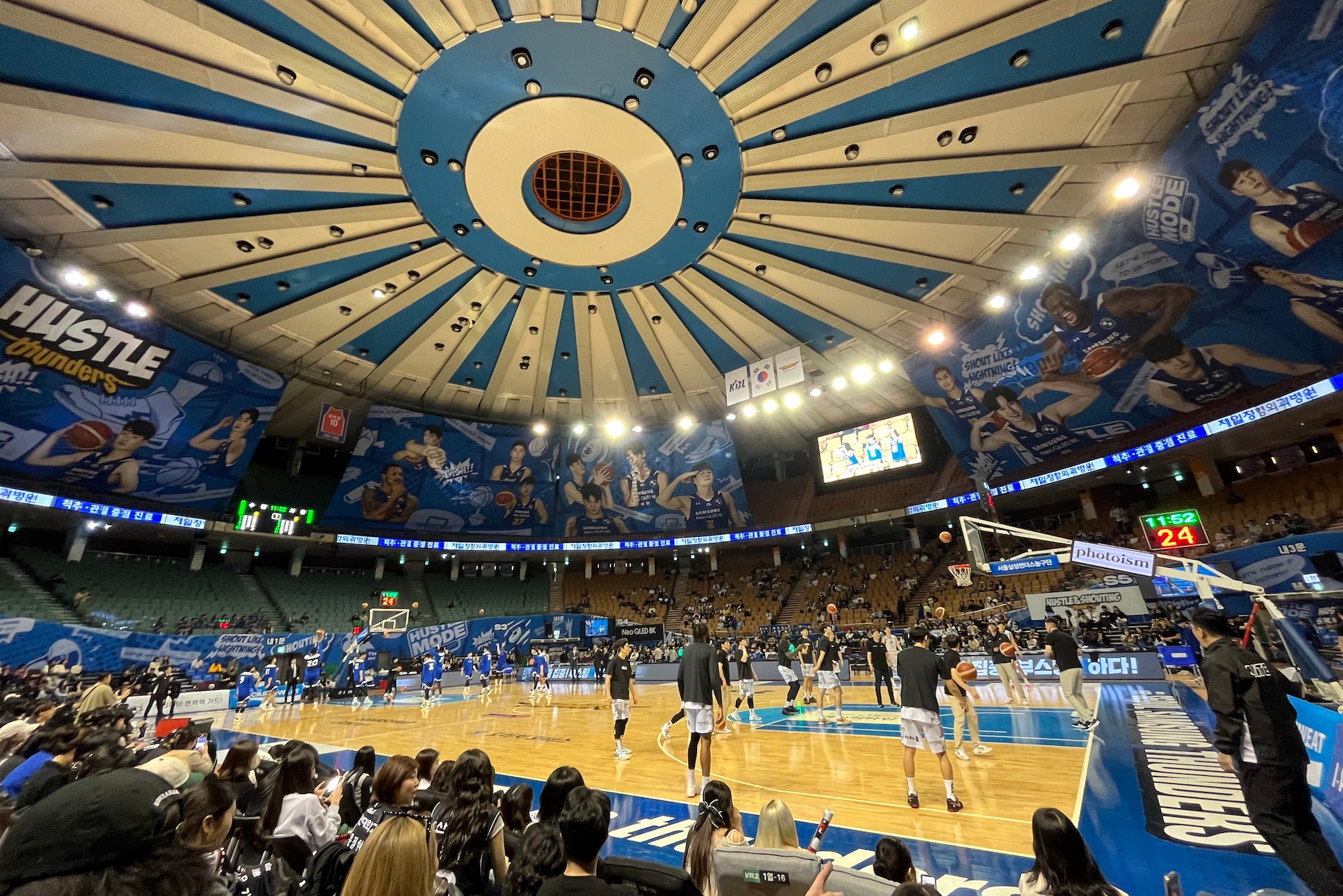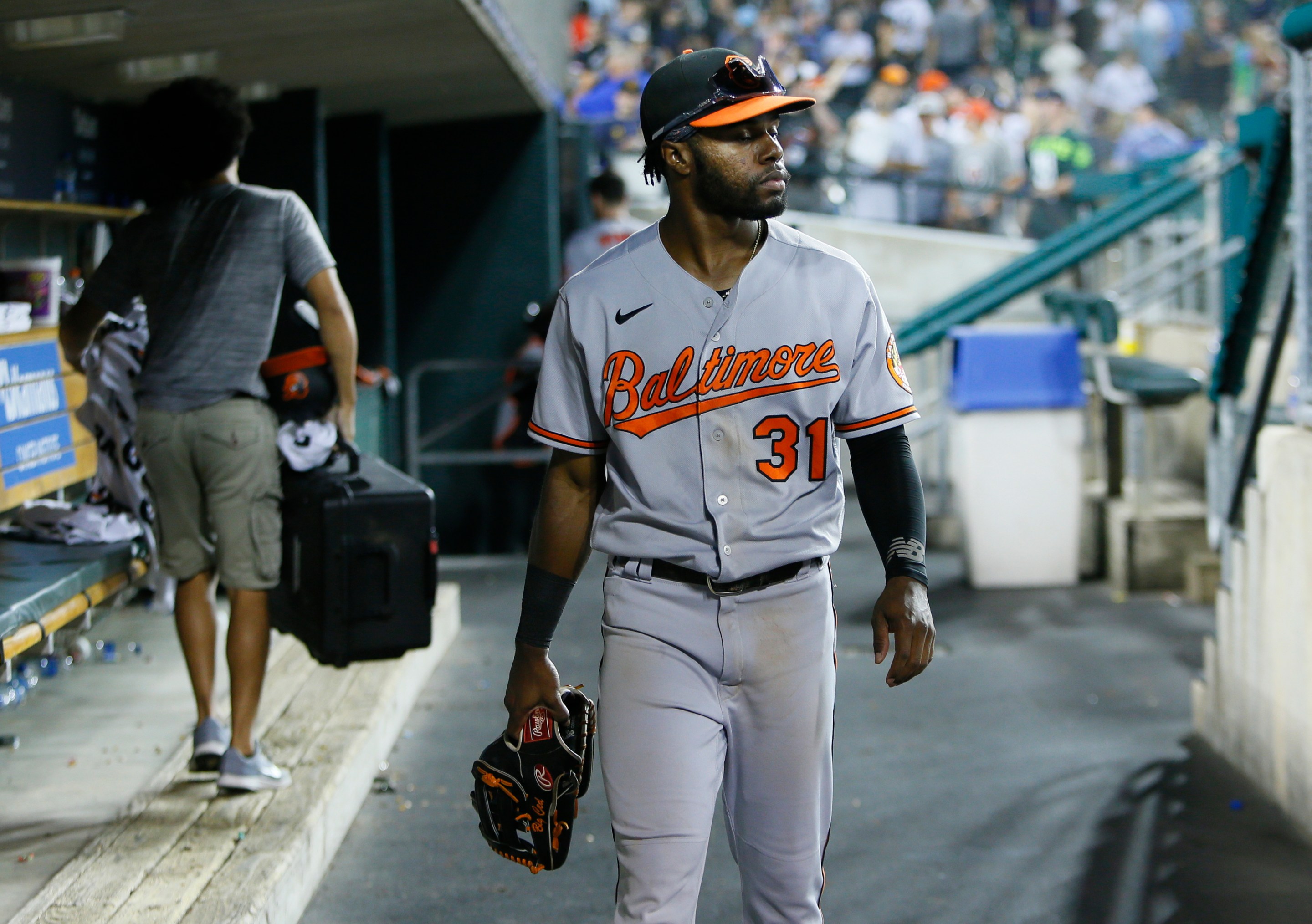
In the month of August, the Baltimore Orioles have won once. Their current streak of 13 straight losses began with a four-game stretch in which they lost 13-1, 10-3, 10-6, and 12-3, and hit 13 on Tuesday night when they dropped a 10-0 squeaker to the Rays. The Orioles have lost a rather startling number of games by scores like that, and their run differential of -218 is an astonishing 43 runs worse than Arizona, the only big-league team with more losses. It is not yet their longest losing streak of the season, but it is getting close.
Given that the Orioles are one of the teams that exists in the dusky boglands that lie between "not really trying to win games" and "really trying not to win games," it would be fair to say that this is all going according to plan. The big-league team getting kicked down the dang Exorcist steps every single day is both part of the broader organizational overhaul orchestrated by GM Mike Elias—the Orioles will, yet again, wind up with one of the first picks in next June's MLB Draft—and pretty thoroughly beside the point. This does not make any of it less excruciating. "It's awful," staff ace John Means said after getting torched on Tuesday. "A lot of our guys are losing sleep. A lot of guys are frustrated with what they're doing, especially me." None of this is pleasant to behold, but the Orioles have been clear that they are still at least a year from even trying to offer anything remotely like that.
Back in November of 2018, Elias was brought in to reimagine an organization that was by then already pretty well broken by its own self-thwarting organizational backwardness and creeping cheapness. The latter instinct has been indulged while the former challenge has been, thanks in no small part to the draft position that the big league club's failure has afforded, more or less worked out. It is cheaper, if slower, to fix how an organization develops talent than it is to reboot the big-league roster; the Orioles are not the first team to pair an organizational overhaul with an almost compulsively shameless and fulsome abandonment of the big-league product. There is no reason that a team rebuilding as totally as the Orioles are could or should not have, say, offered arbitration to Hanser Alberto, a surplus utility dude they plucked off the curb from Texas and watched become a league-average infielder. But because the people in charge saw no reason to make the team very slightly more expensive and somewhat better, they didn't. He's on the Royals now, and simultaneously more or less replacement-level and significantly better than anyone the Orioles have run out there in his stead.
At some point in the next two years, prospects like Adley Rutschman and Heston Kjerstad and Grayson Rodriguez—the first, second, and 11th players drafted in 2019, 2020, and 2018, respectively—will arrive in Baltimore. Those prospects may join the current team's best players, developmental successes like Means, a 17th-round pick who has beaten the odds to become a very good starting pitcher, or Cedric Mullins, a 26-year-old former 13th-round pick who has abruptly become one of the most valuable offensive players in the game this year in his first real shot at a starting role. They will begin to become a baseball team in earnest, and the spots on the roster currently filled by Create-A-Player journeymen and anthropomorphized "??? ???" memes will then finally be addressed as parts of a coherent whole.
It is not quite accurate to say that Means and Mullins are the only good players on the Baltimore Orioles; what makes the Orioles stand out is that there are so few even middling performers beneath them. Of the six pitchers to take 10 or more turns in the rotation for the Orioles this year, Means is one of two whose ERA is under six; the other is on the 60-day IL. Mullins has a stellar .912 OPS, but only two other players on the roster are within even 150 points of that mark. This is not a young team figuring things out, or an unlucky team muddling through. They really are what their record says they are, and this really is more or less what they're trying to be.
Given that Means will become eligible for arbitration after this season and Mullins after next, that rising class of prospects may just pass them on their way out. After the team's quiet trade deadline—the Orioles traded one of their coterie of budget-priced rental veterans for a 23-year-old A-ball starter, and sold another for cash—Elias said that he expects Means and Mullins to be with the team when they're ready to contend. "They’re here for a long time," he said, "and they play positions that are not easy to find guys to do what they do. It’s not a priority for us to look at those opportunities." In the same press conference, Elias stopped palpably short of a commitment to bringing back Trey Mancini, who is both a beloved fan favorite and the team's other good hitter, but who will turn 30 next year and is nearly due to get paid like the player he is. "I hope he’s here as long as possible," Elias said, "and, ultimately, we’re going to take things as we come like baseball teams do in the major leagues and look at stuff and keep talking." That's not an emotional statement, but what the Orioles are doing is by its nature not an emotional thing. If Means and Mullins can be redeemed for a handful of gangly teenaged lottery tickets, they absolutely will be.
It works and it doesn't. Whatever other exciting things the Orioles might become in the future, they are oppressively and relentlessly this other thing in the present. Of their 80 losses, 33 have been by five or more runs. If the Orioles could push a button and have a computer simulate the rest of the season's games, they certainly would do so. It's hard to imagine that their fans would be much worse off if they did. They would be cheated out of a summer of major-league baseball from the team they care about, but that's already happening. Process-style teardowns like the one that Elias is overseeing tend to flatten seasons into just this kind of gray hopelessness; whole months pass in a hungover fug of 6-2 defeats and queasy compound bullpen blowups. More than that, this sort of gambit makes those seasons abstract. Nothing the Orioles do this year will be more exciting than, say, the news of Rutschman getting promoted to AAA. Nothing that will or even just might happen this year will be more important than the possibility of what might maybe happen at this time next year, or the year after that. At some point, the team will announce that it is trying, but until then the meaninglessness and its attendant abstraction is something like the point.
Elias and assistant GM Sig Mejdal were hired away from the Astros, and have brought the data-driven institutional approach for which that organization was renowned before it became better renowned for its preposterously oafish cheating and toxic workplace. All of what Baltimore is doing now, the razing of the big league club alongside a wholesale reimagining of player development and the considered decision to put several seasons into this kind of haunted cryosleep, has already been proven to work by those very Astros. None of what is happening with and to the Orioles right now did not also happen first to and later for the Astros; this was and remains the entire idea. At some point, possibly as soon as the day after Rutschman's Super Two service time cutoff next season, the Orioles might begin trying to improve instead of trying to make sure they don't. Sometime after that, they might actually start trying to win. At some point after that they might even manage to do it.
Much of that will depend upon things that are impossible to know right now. Some of this is just a matter of baseball being very hard. Rutschman is clearly really good, for instance, but whether he becomes Buster Posey or Matt Wieters will do a great deal to dictate how well any of this will work, or if it will work at all, and one outcome is not notably more likely than the other. The organization's new approach may help the Orioles go from being one of the very worst teams in the sport at developing pitching to a spot closer to the middle of the pack, but that will make itself clear in fits and starts over the course of years, and only and always according to the vagaries and variables that always apply where pitching prospects are concerned. In the years between, however many more there are, there will be nothing to do but wonder whatever it all might someday be.
This is convenient for Elias, as it is for the other executives permitted to operate on similar timetables, primarily because it just feels unfair to challenge a vision that so insistently resists revealing itself. Years can go by like this, projecting various futures and politely tuning out the unwatchable present. Half a decade can easily pass before the folly or wisdom of such things even start to become legible, let alone clear enough to evaluate. The games keep happening, but they are just music in the waiting room. At some point, soon or less soon, a door will open. Until then, though, there is just this—the squashed-flat months of a blithely, brutally meaningless season, the endless airless descent before the cord is ready to be pulled, and all this quiet in which to find some meaningful distinction between waiting and just wasting time.
If you liked this blog, please share it! Your referrals help Defector reach new readers, and those new readers always get a few free blogs before encountering our paywall.
Editor. Co-host of The Distraction.
Stay in touch
Sign up for our free newsletter
